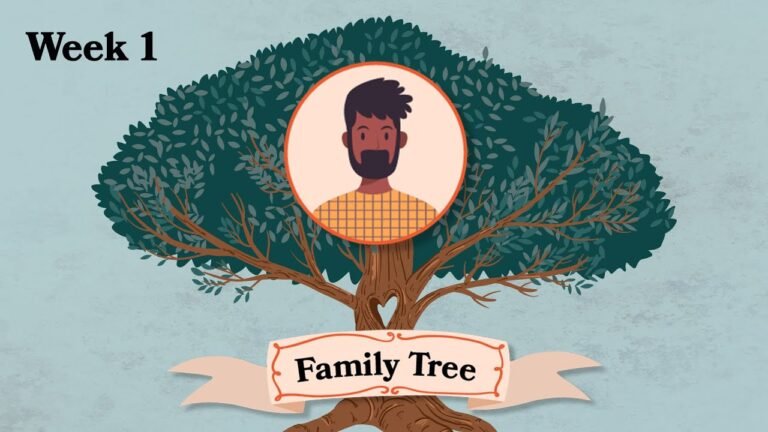Divine Warfare: Understanding the Role of Conflict in the Bible
The theme of war in the Bible is a complex tapestry woven throughout the sacred texts, reflecting the tumultuous history of ancient peoples and their struggles for survival, justice, and identity. From the battlefield narratives of the Old Testament to the symbolic battles in the New Testament, these stories offer profound insights into the human condition, morality, and divine intervention. As we explore the multifaceted portrayals of conflict, we uncover not only the historical context of these wars but also their enduring implications for faith and ethics in contemporary society.
- The Bible presents various instances of war, illustrating both physical battles and spiritual conflicts, with narratives such as the Israelites’ conquest of Canaan and the struggles faced by early Christians.
- Themes of divine intervention and moral justification are prevalent, with God often depicted as a commander or supporter of armies, raising questions about the nature of righteousness in warfare.
- The New Testament shifts the focus from physical warfare to spiritual warfare, emphasizing love, peace, and forgiveness as central tenets for believers in contrast to the violent narratives found in the Old Testament.
What is the Bible’s perspective on war?
The Bible presents a complex view of war, acknowledging its harsh realities while also illustrating its necessity in certain contexts. Throughout scripture, God commanded the Israelites to engage in battles against other nations, as seen in passages like 1 Samuel 15:3 and Joshua 4:13. While war is inherently tragic and often stems from a world marred by sin, it is portrayed as a sometimes unavoidable response to evil and injustice. Thus, rather than a blanket condemnation of conflict, the Bible suggests that war can serve a purpose in the pursuit of righteousness and the protection of the vulnerable.
What does the Bible say about war?
The biblical view of war presents a nuanced perspective that recognizes the complexity of conflict in a fallen world. It upholds the just war position, asserting that while some wars can be deemed justified, allowing Christians to bear arms in defense of righteousness, there are also wars that lack moral justification, which Christians are called to oppose. This duality emphasizes the importance of discernment and moral integrity in matters of warfare, guiding believers to navigate the challenges of justice and peace in accordance with their faith.
What is the Bible’s perspective on just war?
The Bible outlines specific principles that govern the concept of just war, emphasizing the moral responsibilities of those who engage in conflict. It stipulates that a war should be officially declared by a governing authority, as indicated in Romans 13:4, ensuring that it aligns with the rule of law. Additionally, the war must aim to protect the innocent or respond to an evil aggressor, as illustrated in Genesis 14, highlighting the importance of defending justice. Finally, the means employed in warfare must be just and ethical, as noted in Deuteronomy 20:19, reinforcing the need for moral integrity even in times of conflict.
Unraveling Sacred Battles: Insights from Scripture
In the rich tapestry of scripture, sacred battles serve as powerful metaphors for the struggles faced in our spiritual journeys. These narratives, steeped in symbolism, reveal the internal and external conflicts that shape our faith. By examining the stories of figures like David and Goliath or Joshua at Jericho, we uncover timeless lessons about courage, resilience, and the transformative power of belief. Each encounter illustrates the profound idea that victory often emerges not from sheer strength, but from unwavering faith and divine guidance.
As we delve deeper into these sacred texts, we discover that the battles depicted are not merely historical accounts, but reflections of our own challenges. They remind us that every struggle carries the potential for growth and enlightenment. The lessons of perseverance and trust in a higher purpose resonate across generations, encouraging individuals to confront their fears and uncertainties with renewed vigor. In moments of doubt, these stories inspire us to seek strength through faith, highlighting the importance of community and shared belief in overcoming adversity.
Ultimately, the insights gleaned from these sacred battles invite us to explore the nature of our own conflicts, both within and around us. They challenge us to redefine what it means to triumph, urging us to embrace the journey rather than solely focus on the outcome. In recognizing that our spiritual battles are integral to our growth, we find solace in the knowledge that we are not alone. Together, we can navigate the complexities of our faith, drawing wisdom from scripture to illuminate our path forward.
Faith and Fury: The Theological Significance of Conflict
Throughout history, conflict has often served as a crucible for faith, shaping beliefs and communities in profound ways. Theological narratives frequently emerge from the ashes of strife, as individuals and societies grapple with questions of morality, justice, and the divine. In times of turmoil, faith can act as both a refuge and a catalyst, prompting believers to seek deeper understanding and connection with their spiritual teachings. This dynamic interplay between faith and conflict underscores the transformative power of adversity in the quest for meaning.
Conflict also reveals the complexities of religious interpretations, as different factions may invoke the same texts to justify opposing actions. The struggle for power and identity within theological frameworks often leads to divergent paths, illuminating the tension between unity and division. By examining these conflicts, one can appreciate how faith can be both a source of strength and a trigger for discord, reflecting a broader human experience that transcends cultural and historical boundaries. This duality challenges believers to critically engage with their doctrines while fostering compassion and dialogue.
Ultimately, the theological significance of conflict invites a deeper exploration of how faith can inspire resilience and provoke change. As communities confront their differences, the lessons learned from conflict can pave the way for reconciliation and growth. By embracing the complexities of faith in the face of adversity, individuals may discover not only the potential for personal transformation but also the possibility of collective healing. In this way, conflict becomes a vital component of the journey towards a more profound understanding of faith and its role in shaping the human experience.
Holy Struggles: Lessons from Biblical Warfare
Throughout history, biblical warfare serves as a profound metaphor for the internal and external struggles we face in our lives. The epic battles depicted in scripture are not merely tales of conflict; they are deep lessons about resilience, faith, and the quest for righteousness. From David’s confrontation with Goliath to the Israelites’ journey through the wilderness, these stories illustrate the importance of courage and divine guidance in overcoming formidable challenges. Each warrior’s journey reminds us that victory is often not just about physical strength, but also about spiritual fortitude and unwavering belief in a higher purpose.
Moreover, the narratives of biblical warfare encourage us to confront our own personal battles with the same tenacity and hope. As we navigate the complexities of modern life, we can draw inspiration from these ancient lessons, recognizing that struggles are an integral part of growth and transformation. The trials faced by biblical figures remind us that we are not alone in our struggles; they encourage us to lean on our faith, seek community support, and emerge stronger from adversity. In embracing our holy struggles, we discover the profound truth that every battle fought can lead to a deeper understanding of ourselves and our place in the world.
The war in the Bible serves as a profound reminder of the complexities of human conflict, intertwining themes of morality, justice, and divine intervention. These ancient narratives not only reflect the struggles of their time but also offer timeless insights into the nature of power and the consequences of violence. As we navigate our own turbulent world, the lessons drawn from these biblical accounts encourage us to seek understanding and peace amidst discord, urging a thoughtful examination of our actions and beliefs.







